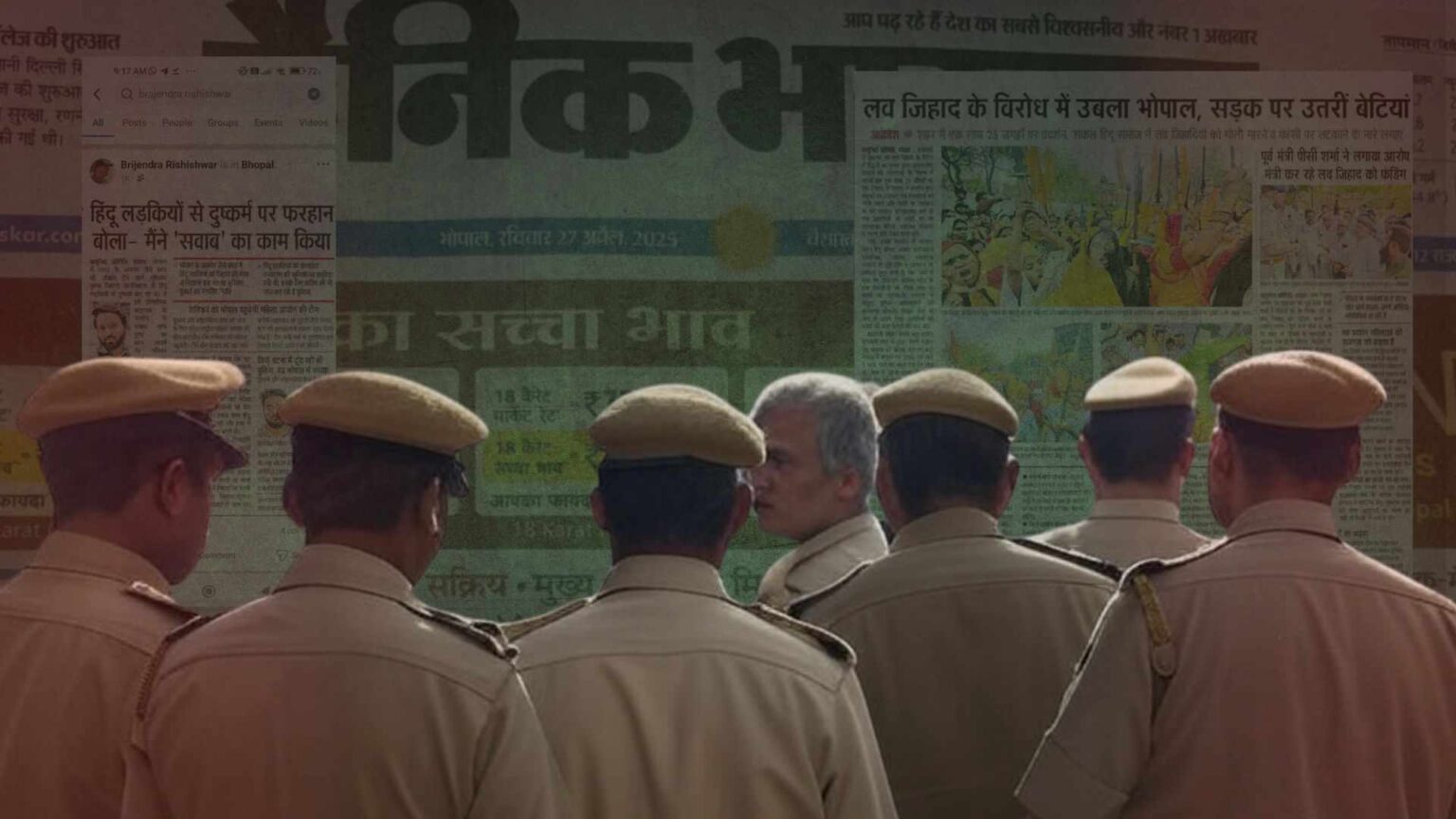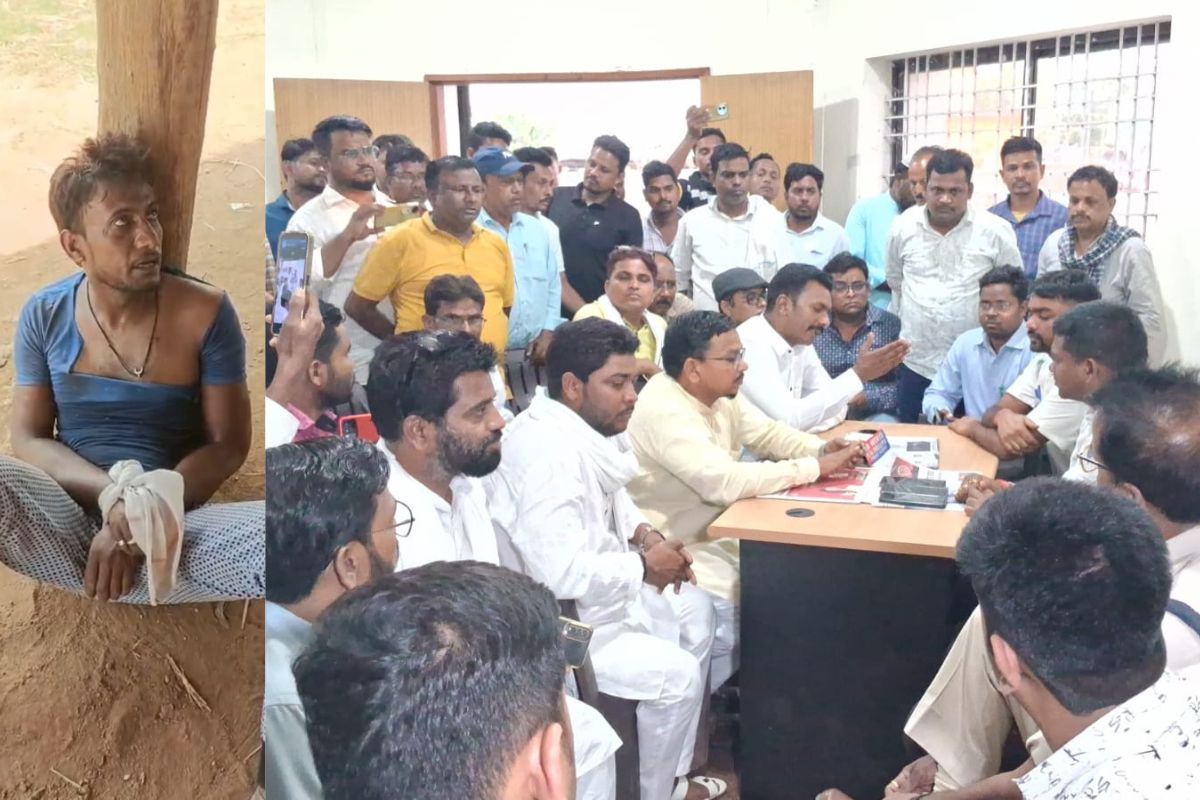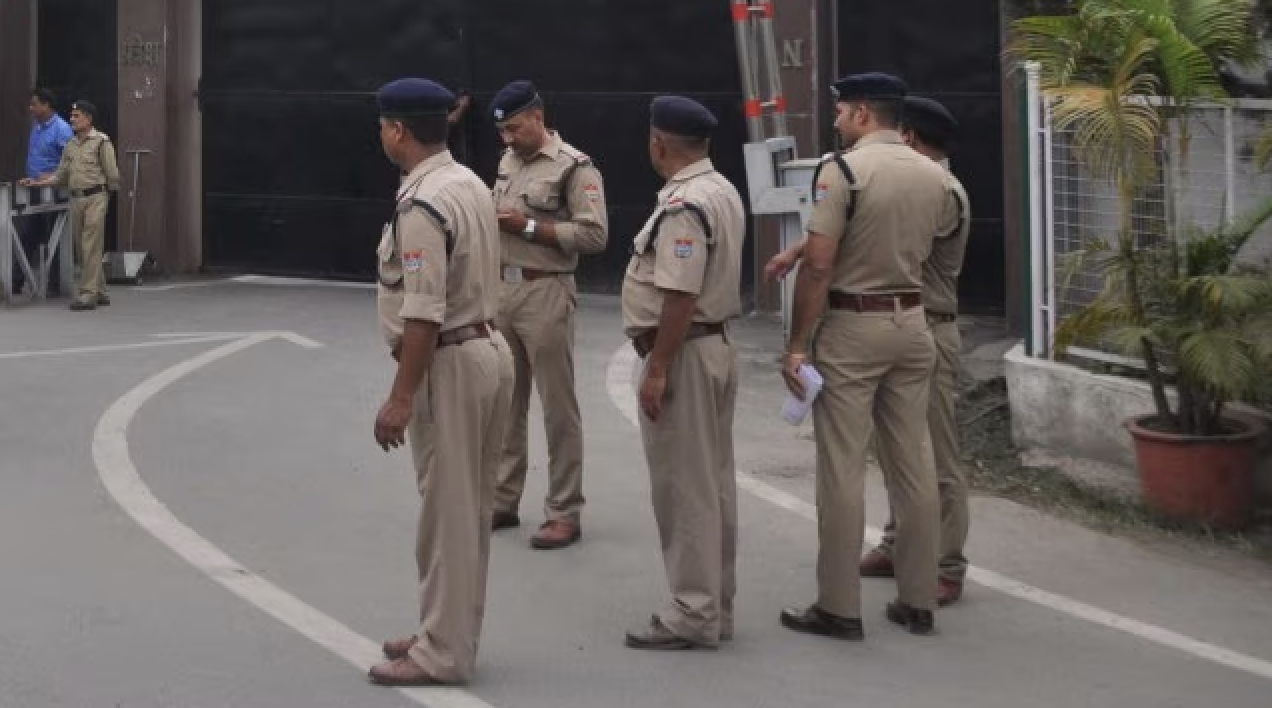By S N Sahu
The frightening violence in Haryana after a religious procession organised by the Vishwa Hindu Parishad and Bajrang Dal in Mewat coupled with gruesome violence and unprecedented sexual assault on women in Manipur along ethnic lines have shocked the country beyond expression and caused worldwide outrage. The participants in the processions in Mewat, a predominantly Muslim region in Haryana, carried weapons, raised provocative religious slogans and targeting Mewatis in the name of faith. The coexistence of people across barriers of faith and other identities is being endangered by such sinister developments.
Ghastly Impact of Godi Media’s Hate-filled Content
On 31 July also occurred a chilling instance of murder inside a moving train, again along religious lines. The incident that numbed the nation involved Chetan Kumar Singh, a constable of the Railway Protection Force (RPF), who, reportedly killed his superior officer, inspector Tikaram Meena by firing from a service revolver on a train traveling from Jaipur to Mumbai. Singh is said to have moved from compartment to compartment, firing at three Muslim passengers whom he carefully picked after identifying their religion.
According to a purported video of the incident, he stood near a person he had just killed, and said, “Agar vote dena hai, agar Hindustan me rehna hai, toh mai kehta hoon, Modi aur Yogi, ye do hain, aur aapke Thackeray—If you want to live in India, if you want to vote, then I say, Modi and Yogi, these are the two, and your Thackeray.”
This video reveals how far hatred drove Chetan Singh, the depths of which can be traced to the high level of communal toxicity incessantly transmitted by the mainstream media, especially TV channels, to polarise people and society. For the kind of content it transmits, this media has come to be known as “godi” or lapdog media, which supports only the ruling party and its leaders, while decrying the Opposition parties even though they are not in power at the Centre and in many states.
As an RPF soldier, Chetan Singh’s professional duty was to serve and protect those travelling on the train and protect them from any harm. Instead, because of the communal venom poisoning his mind and outlook, he used his weapon to kill his boss and citizens for their faith.
The role of a media that recurrently stokes communal passions cannot be overlooked even though there are reports Chetan Singh is suffering from a mental illness. After all, vicious and violent thoughts—the kind telecast on TV channels every day—are what the RPF soldier acted on, going by his own words after the killings.
Gandhi’s Warning on Communal Police
Five days before India’s independence, on 10th August 1947, Mahatma Gandhi, speaking at a prayer meeting at Sodepur, warned, “If this wretched spirit of communalism had entered the police force, the prospect was bleak indeed”. Therefore, he said he “hoped that the police would realise the dignity of their profession”.
Seventy-six years after Gandhi’s dire predictions about the poisonous communal spirit within the police, the nation is witnessing the horrors of communalism guiding this armed force—be it RPF constable Chetan Singh or the police personnel in Manipur who are being accused of having handed over three Kuki women to a hostile crowd that sexually assaulted and paraded them.
The situation in Manipur is such that a fake claim was circulated of women from the Meitei (dominant community in the state) being raped by members of the Kuki tribe.
This fake news transmitted at lightening speed and is known to have led to the brutality, self-servingly said to be provoked by the wish to “take revenge”. The most shocking thing is that the police had clarified that the circulating imageries are fake, but people did not stop to verify the information, nor did they stop believing that Meitei women had been assaulted.
The result of such situations is that once out of the bottle, the genie of hate is hard to put back inside. This is one reason why we find that even government personnel trained to be neutral to identity, be it of faith, caste, language or gender, are now being motivated into committing crimes by narratives based on raw lies.
Gandhi on Media Spreading Hate and Lies
In December 1926, one Abdul Rashid killed Swami Shraddhanand after reading a false news item. On 30 December 1926, Mahatma Gandhi wrote an article, “Shraddhanandji—The Martyr”, in Young India in which he candidly admitted that “There is the danger of Mussalmans secretly endorsing the mad deed” and he observed that such an act on their part “will be a calamity for them and the world”. He also stressed that “there should be, on their part, unequivocal mass condemnation of the atrocity”.
He even pleaded for Rashid, saying it hardly mattered to him to ascertain what prompted him to commit that deed—for Gandhi blamed some newspapers and journalists for using the media to spread false and insidious information.
Boldly accepting that “the fault is ours”, he sharply observed, “The newspaper man has become a walking plague,” who “spreads the contagion of lies and calumnies”. Gandhi bluntly wrote: “He exhausts the foul vocabulary of his dialect, and injects his virus into the unsuspecting, and often receptive minds of his readers”.
He also wrote: “Leaders intoxicated with the exuberance of their language have not known to put a curb upon their tongues or pens.” Gandhi said, “Secret and insidious propaganda has done its dark and horrible work, unchecked and unabashed.” “It is we, the educated and the semi-educated class, that is responsible for the hot fever which possessed Abdul Rashid,” he concluded.
Today, the “hot fever” of insidious propaganda the media propagated in the 1920s and the “dark and horrible work” it produced unabashedly finds resonance. Godi media incessantly spews communal venom and influences people who, like Chetan Singh, commit crimes in the name of faith.
Gandhi Called to Boycott Newspapers Spreading Hate
On 26 December 1926, Gandhi, while moving a resolution at a Congress session organised in Gauhati [Guwahati] to pay tribute to Swami Shraddhanand following his assassination, delivered a speech in which he said, “If you hold dear the memory of Swami Shraddhanandji, you will help in purging the atmosphere of mutual hatred and calumny…. by boycotting papers which foment hatred and spread misrepresentation.”
He critically said, “I am sure that India would lose nothing if 90 per cent of the papers were to cease today.” He also said, “Many Mussalman papers today subsist on hatred of the Hindu, and many Hindu papers subsist on hatred of the Mussalman.”
His observations from 1926, especially that “India would lose nothing if 90 per cent of the papers were to cease today” are of abiding relevance for India in 2023, when the mainstream TV channels owned by corporate giants are engaged in promoting false news and hate in the name of religion.
India would lose nothing if such TV channels close down…
This story was originally published in newsclick.in. Read the full story here






